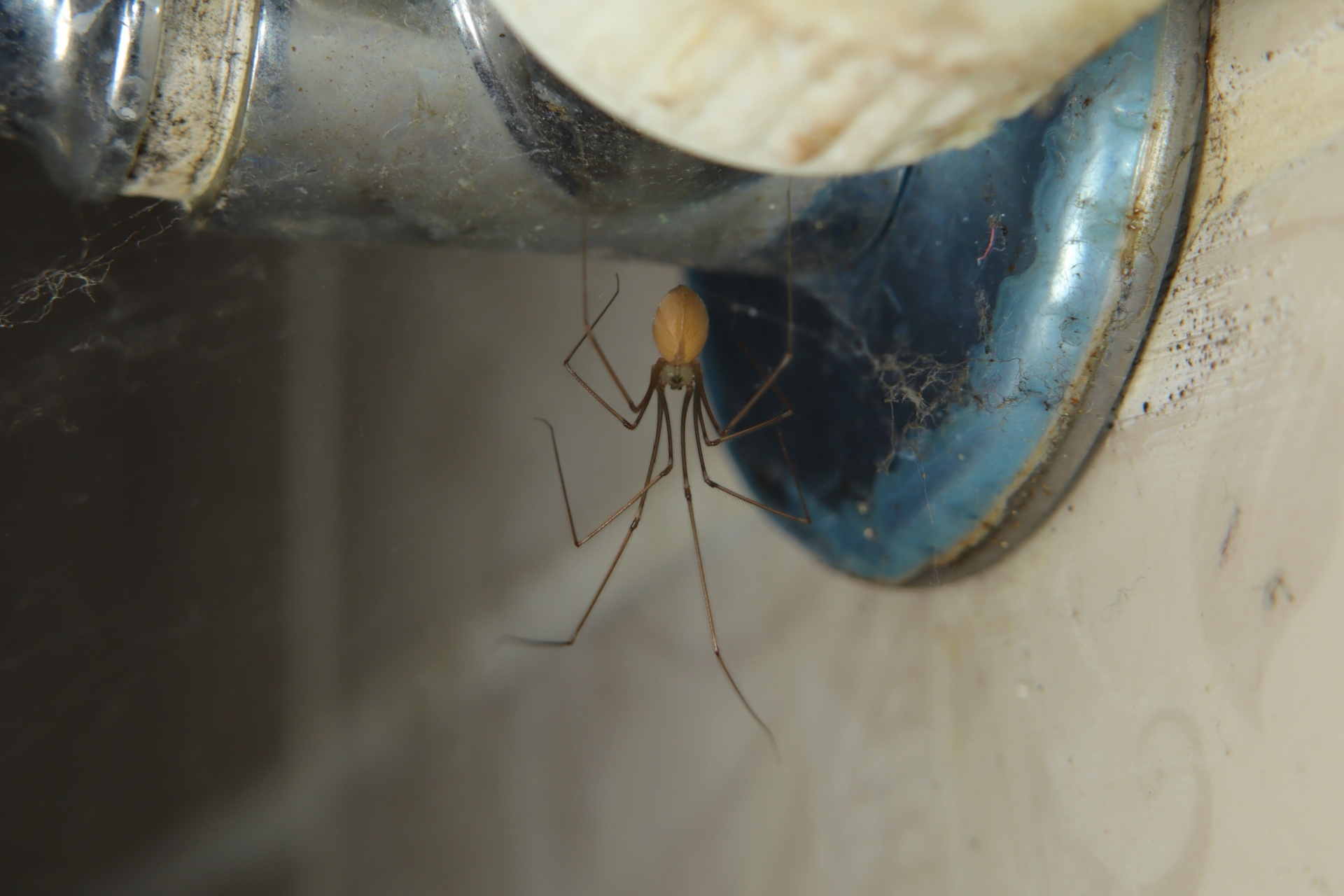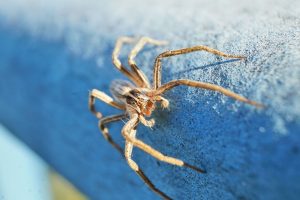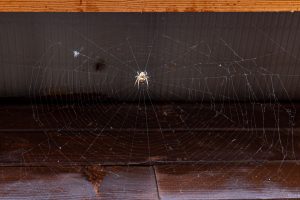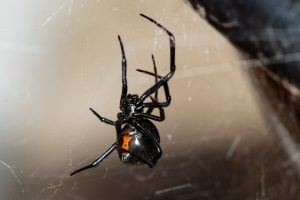Spiders are nature’s pest control—but when they invade your home, it’s time to draw the line. Fort Myers residents know the struggle all too well. This checklist offers a practical, eco-friendly approach to keeping your home spider-free, no matter the season.
1. Seal Cracks and Gaps Around Your Home
Spiders are experts at slipping through tiny openings. Walk around your home and inspect for cracks in the foundation, gaps around windows and doors, and openings near utility lines. Use weather-resistant caulk and install door sweeps to block these entry points. This simple step is one of the best ways to keep spiders out of your house.
Don’t forget less obvious areas like attic vents, crawl space access points, and where pipes enter the walls. These spots are often overlooked but can be prime entryways for spiders and other pests. A thorough inspection once per season can make a big difference in keeping your home sealed tight.
If your home has older construction or has settled over time, you may find more gaps than expected. Consider scheduling a professional inspection to identify vulnerabilities you might miss. A well-sealed home not only deters spiders—it improves energy efficiency and keeps other pests out too.
2. Trim Back Vegetation That Touches Your Exterior Walls
Overgrown shrubs and tree branches create natural bridges for pests. Spiders often nest in dense foliage and migrate indoors when temperatures shift or prey becomes scarce. Keep plants trimmed at least a foot away from your home’s siding and roofline to reduce spider access.
This is especially important in Fort Myers, where lush landscaping is common. Palms, ornamentals, and climbing vines may look beautiful, but they also provide shade and shelter for insects—spiders’ favorite food source. By maintaining a clean perimeter, you reduce both the habitat and the highway that leads straight into your home.
If you have mulch beds or decorative ground cover near your foundation, consider switching to less pest-friendly materials like gravel. Organic mulch retains moisture and attracts insects, which can indirectly invite spiders to settle nearby.
3. Switch to Yellow or Sodium Vapor Outdoor Lighting
Bright white lights attract flying insects, which in turn attract spiders. Consider replacing porch and landscape lighting with yellow or sodium vapor bulbs. These emit wavelengths that are less appealing to bugs, helping you reduce the food source that draws spiders close to your home.
This small change can have a big impact, especially during Florida’s warmer months when insect activity spikes. Position lights away from entry points and use motion sensors to limit unnecessary illumination. Less light means fewer bugs—and fewer bugs mean fewer spiders.
4. Declutter Storage Spaces and Use Sealed Containers
Garages, attics, and sheds are spider magnets. Cardboard boxes, piles of clothes, and rarely used items offer perfect hiding spots. Replace open bins with sealed plastic containers and rotate stored items seasonally to discourage nesting. This is one of the most effective DIY spider control strategies in Fort Myers.
Spiders prefer quiet, undisturbed areas where they can build webs and hunt in peace. By keeping storage spaces organized and accessible, you eliminate the dark corners they love. Consider labeling containers and using shelving to keep items off the floor—this not only helps with pest control but also improves overall home maintenance.
5. Vacuum Corners, Baseboards, and Behind Furniture Weekly
Spiders love undisturbed areas. Regular vacuuming—especially in corners, under furniture, and along baseboards—removes webs, egg sacs, and the insects spiders feed on. Use a hose attachment to reach tight spaces and don’t forget closets, attics, and crawl spaces.
Consistency is key. Even if you don’t see spiders, their webs and egg sacs may be hiding in places you rarely check. Weekly cleaning routines help break the cycle before it starts. For added protection, consider using a vacuum with a HEPA filter to trap allergens and microscopic pests that spiders feed on.
6. Reduce Indoor Humidity With Dehumidifiers
Spiders thrive in moist environments. Bathrooms, basements, and laundry rooms often have elevated humidity levels that attract both spiders and their prey. Use a dehumidifier to maintain a dry atmosphere and improve overall air quality. This is especially important during Florida’s rainy season.
In Fort Myers, seasonal humidity can spike quickly, especially during summer storms. Monitor moisture levels with a hygrometer and aim to keep indoor humidity below 50%. Not only will this deter spiders, but it will also help prevent mold, mildew, and other pest-related issues.
If you notice condensation on windows or a musty smell in certain rooms, those are signs your home may be too humid. Improving ventilation and using exhaust fans in kitchens and bathrooms can complement your dehumidifier and create a less hospitable environment for pests.
7. Use Natural Repellents Like Peppermint Oil and Vinegar
Eco-friendly spider prevention in Fort Myers doesn’t have to be complicated. Mix peppermint oil with water and spray it around windows, doorways, and dark corners. Vinegar solutions also work well and are safe for pets and kids. These natural deterrents disrupt spiders’ sensory receptors, making your home less inviting.
For best results, reapply these sprays weekly and after cleaning. You can also soak cotton balls in essential oils and place them in problem areas like closets, under sinks, and near vents. The strong scent acts as a barrier, and unlike chemical sprays, it won’t compromise your indoor air quality.
If you’re looking for a longer-lasting option, consider planting peppermint or lavender near entryways and windows. These aromatic plants not only repel spiders but also add a pleasant scent to your home’s exterior.
8. Inspect Packages, Firewood, and Outdoor Gear Before Bringing Them Inside
Spiders often hitch rides on everyday items. Before bringing in groceries, firewood, or patio cushions, give them a quick shake or inspection. This simple habit can prevent accidental introductions of spiders into your living space and is a key part of seasonal spider prevention in Southwest Florida.
This tip is especially useful during holidays and outdoor seasons when packages and gear are constantly moving in and out. Spiders don’t discriminate—they’ll nest in cardboard, fabric, or even inside shoes. A quick visual check can save you from a surprise encounter later.
Tracking the Success of Your DIY Spider Control Efforts
DIY spider prevention works best when you treat it like a strategy—not just a checklist. One of the smartest ways Fort Myers homeowners can stay ahead of infestations is by monitoring the results of their own efforts.
Start by keeping a simple log of spider sightings. Note where and when you see them, what type (if identifiable), and whether webs or egg sacs are present. Over time, this helps you spot patterns—like seasonal spikes or recurring problem areas. You can also place sticky traps in low-traffic zones to track movement. These traps won’t eliminate spiders, but they’ll give you a clear picture of where activity is concentrated.
By treating your DIY efforts like a mini home experiment, you’ll know which strategies are working and where you may need to adjust. And if things escalate beyond what you can manage, you’ll have valuable data to share with professionals like Pest Solutions Plus—making their job faster and more precise.
When the Webs Keep Coming Back: Call in the Pros Who Know
You’ve checked every box on the prevention list, but the spiders still find their way in. Florida’s climate creates ideal conditions for infestations that DIY alone can’t fully control. When that’s the case, it’s time to turn to professionals who specialize in solving what others can’t.
Pest Solutions Plus approaches spider control with a data-informed strategy and eco-friendly execution—ensuring results that hold up in Florida’s demanding conditions. Let’s make your home a no-web zone—contact us today and we’ll build a spider-free plan that actually works.






